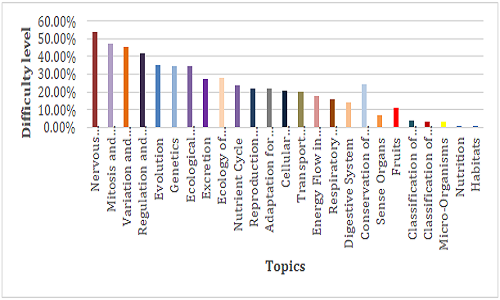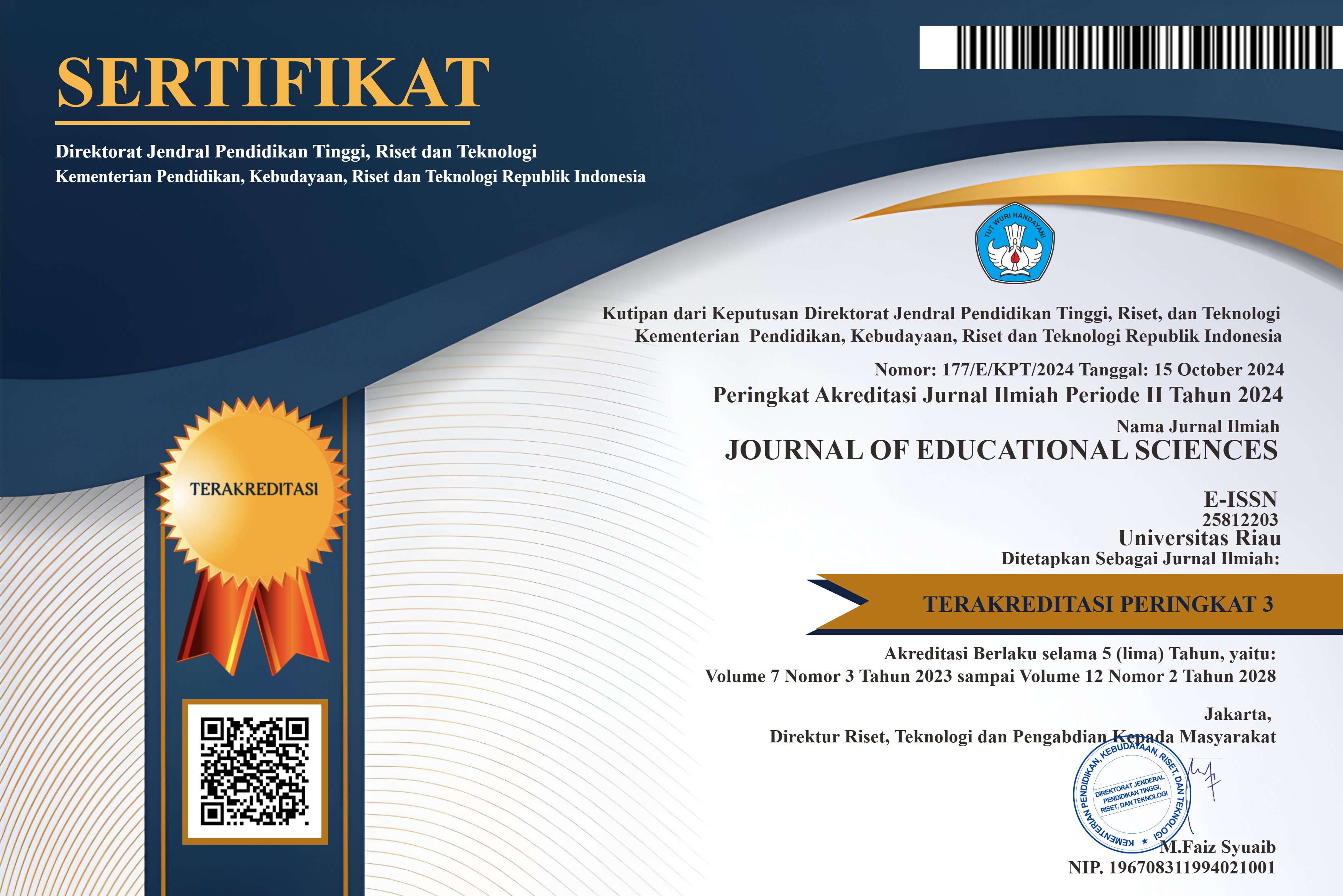Decoding Difficulty: A Quantitative Analysis of Difficult Concept in the Biology Curriculum
DOI:
https://doi.org/10.31258/jes.8.4.p.570-581Keywords:
Concept Difficulty, Biology, GenderAbstract
The study sought to establish the concepts that students perceive to be difficult in the biology curriculum in Nigerian schools and key factors that contribute to the difficulties of the concepts. The study adopted a quantitative survey research design. The participants in this study were 340 students from senior secondary schools in Nigeria. Difficult Concept in Computer Studies Questionnaire (DCCSQ) (r=.80) was used to collect data for the study. It was revealed that nervous coordination, mitosis and meiosis, variation and evolution, regulation and Internal Environment were perceived to be very difficult. The study found that the most significant factors that students find to be enhancers of learning difficulty of biology concepts includes lack of instructional materials, the absence of well-equipped laboratories for practical teaching, large class sizes, complexity of topics and the broad biology curriculum. It was revealed that there was no statistically significant difference between male and female students in their perception of the difficulty of biology concepts. It was concluded that improving access to instructional materials, enhancing laboratory facilities, and addressing the complexity of the biology curriculum are critical steps needed to improve students' understanding of difficult biology concepts. It was recommended that teachers should also adopt more interactive teaching methods to engage students and enhance understanding.
Downloads

Downloads
Published
Issue
Section
License

This work is licensed under a Creative Commons Attribution-NonCommercial-ShareAlike 4.0 International License.












